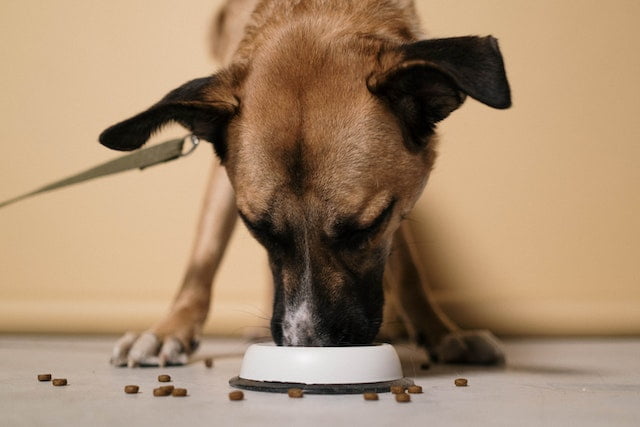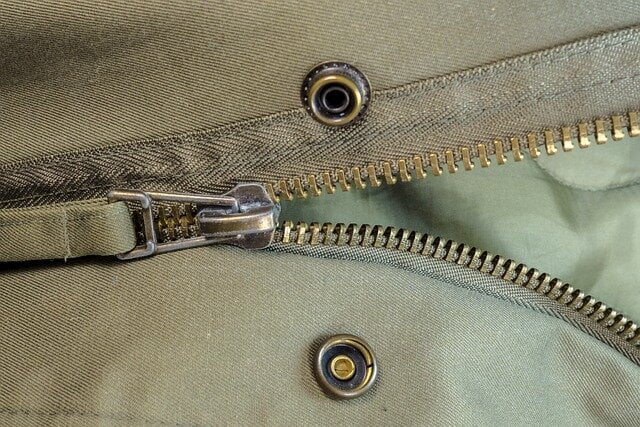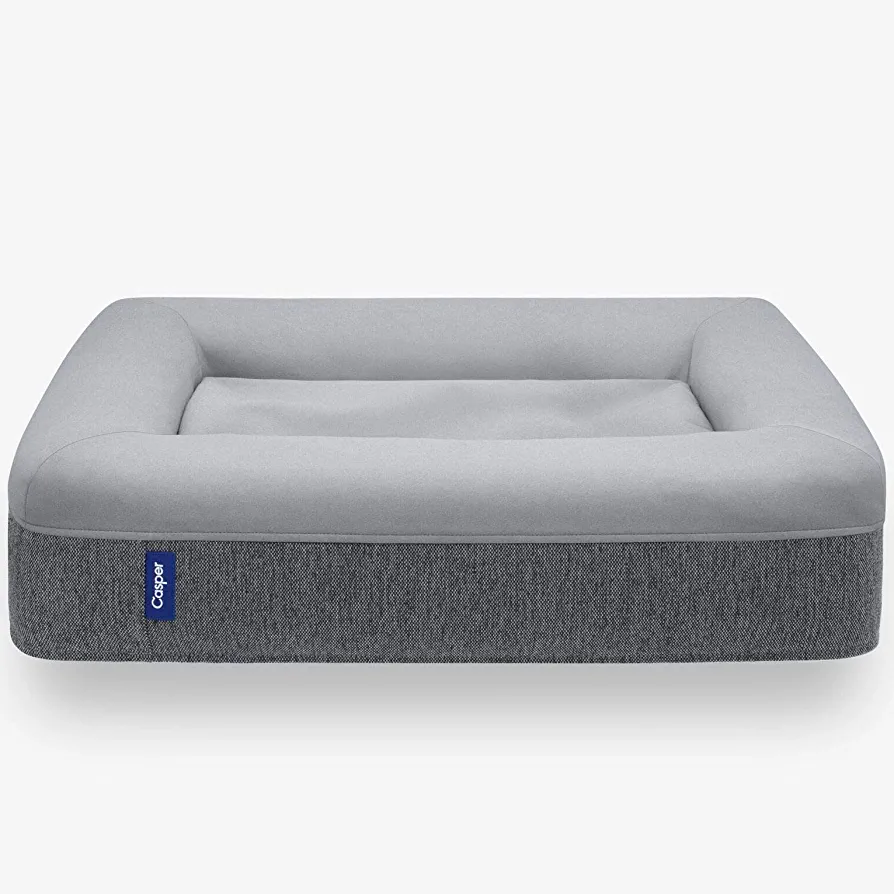My dog won’t eat breakfast but eats dinner (Here’s what to do) (2024)
Is your dog refusing to eat breakfast but happily eating dinner? As a responsible pet owner, you might be concerned about this peculiar behavior and wonder, “Why won’t my dog eat breakfast?” Don’t fret! This is the reason for this article! We’ll delve into the mystery of why some dogs exhibit an aversion to breakfast while readily devouring their evening meal. We’ll also look at the potential reasons behind this puzzling behavior and equip you with practical solutions to ensure your dog maintains a healthy and consistent eating routine. So, let’s unravel the breakfast conundrum and discover what you can do to entice your dog to enjoy their morning meal once again.
Why my dog won’t eat breakfast but eats dinner?
Your dog may not eat breakfast but eats dinner due to a preference for the evening mealtime or a possible underlying health issue.
The first thing to do
Before delving deep into the query “Why won’t my dog eat breakfast?”, the very first thing or step you as a responsible pet owner should take is to take your dog to a veterinarian to rule out any medical issues that can be an underlying reason for your dog not eating breakfast.
To rule out any medical issues for why your dog won’t eat breakfast but eats dinner, you should consult with a veterinarian. They can conduct a thorough examination, perform any necessary tests or diagnostics, and provide professional guidance on your dog’s specific situation. Veterinary advice is essential to ensuring your dog’s health and addressing any potential underlying medical conditions that may be affecting their appetite.
Possible reasons why my dog won’t eat breakfast but eats dinner
To provide a more detailed explanation of the question “why won’t my dog eat breakfast?”, here are some of the possible reasons for this behavior in some dogs.
Preference for the evening mealtime
Some dogs can develop a preference for certain meal times based on their routines, past experiences, or reinforcement of behaviors. If your dog consistently refuses breakfast but eagerly eats dinner, then it may simply prefer the evening mealtime. This preference can be influenced by factors such as receiving more attention, treats, or activities associated with dinner.
Health Issues
Just like we said earlier, you need to make sure your dog isn’t suffering from any underlying health issues that are causing it to refuse eating breakfast.
Various health conditions can affect a dog’s appetite, including gastrointestinal problems, dental issues, or nausea. If your dog exhibits a consistent pattern of skipping breakfast, it could be a sign of an underlying health issue. Consulting with a veterinarian is crucial to ruling out any medical problems and addressing potential causes of appetite loss.
Anxiety or stress
Dogs can experience anxiety or stress, which may impact their appetite. Stressful situations such as changes in the household, separation anxiety, or environmental factors can lead to decreased appetite in the morning. Creating a calm and comfortable feeding environment can help alleviate anxiety-related feeding issues.
Routine and environment
We know that dogs thrive on routine, and any disruptions to their daily schedule or environment can affect their eating habits. Changes in the household, travel, or alterations in the feeding routine can cause your dog to refuse breakfast but eats dinner. Ensuring a consistent daily routine and minimizing disruptions can help encourage breakfast consumption.
Food preferences or aversions
Just like humans, dogs can have preferences or aversions to certain types or flavors of food. If your dog refuses breakfast but eats dinner, it’s possible they prefer the taste or texture of the food provided during dinner. Experimenting with different breakfast options or gradually transitioning to a new food may help entice your dog to eat in the morning.
Overfeeding or snacking
If your dog is regularly receiving treats, table scraps, or snacks throughout the day, they may simply not be hungry during breakfast time. Snacking or overfeeding can lead to a reduced appetite for regular meals. It is important to establish proper portion control and limit excessive snacking to encourage breakfast consumption.
Lack of exercise
Dogs that don’t get enough exercise or mental stimulation may have a decreased appetite. Regular physical activity and mental enrichment play a crucial role in a dog’s overall well-being, including their appetite. So, ensuring your dog receives adequate exercise can help stimulate their appetite and encourage regular eating habits.
Temperature or seasonal changes
Another reason why your dog won’t eat breakfast but eats dinner is the temperature or seasonal changes. Some dogs may have a reduced appetite during hot weather or seasonal changes. High temperatures can affect their metabolism and desire to eat. If your dog exhibits a decrease in breakfast consumption during certain times of the year, consider adjusting their feeding routine or providing cooler meals during the warmer months.
Aging or medical conditions
Older dogs or dogs with certain medical conditions may experience a decline in appetite. Age-related issues, dental problems, or chronic illnesses can affect their desire to eat. Regular veterinary check-ups are essential to monitor your dog’s health and address any medical conditions that could be causing breakfast aversion. You may also check out the best dog bed for dogs with arthritis.
It’s important to consider these possible reasons and consult with a veterinarian if your dog consistently refuses to eat breakfast but eats dinner. A professional evaluation will help identify any underlying issues and provide appropriate recommendations to ensure your dog’s health and well-being.
Why feeding routines are essential
Feeding routine refers to the established schedule and process by which a dog is fed meals throughout the day. It encompasses the timing, frequency, and consistency of meals, as well as the overall structure and environment in which the feeding takes place.
A consistent and structured feeding routine plays a crucial role in addressing a dog’s refusal to eat breakfast. When a dog consistently refuses breakfast, it can be a sign of a disrupted feeding routine. Dogs thrive on routine and predictability, and any changes in their mealtime schedule can affect their appetite.
By establishing a feeding routine that includes a set breakfast time, the dog can develop an expectation and hunger for their morning meal.
Consistency in the timing and environment of breakfast helps create a sense of security and reduces stress or anxiety around mealtime.
In addition, ensuring that the dog’s breakfast is provided in a calm and quiet environment without distractions or disruptions further encourages their appetite.
Types of feeding routines
In relation to the concern expressed by pet owners about their dog refusing to eat breakfast, there are a few types of feeding routines that can be considered:
Scheduled mealtime routine
This routine involves providing the dog with specific meal times for breakfast and dinner. By establishing a consistent schedule, the dog develops an expectation and hunger for their morning meal. This routine can help regulate their appetite and encourage them to eat breakfast.
Free-Choice Feeding Routine
In a free-choice feeding routine, food is available to the dog at all times. While this type of routine may not directly address a dog refusing breakfast, it allows the dog to eat whenever they feel hungry. However, it is important to monitor the dog’s overall food intake to avoid overeating or obesity.
Combination Routine
A combination routine combines scheduled mealtime feeding with some free-choice feeding. The dog is offered breakfast at a specific time, but a small portion of food is left out for snacking or grazing throughout the day. This routine provides the dog with the option to eat breakfast while having access to food later if they become hungry.
It’s important to note that the choice of feeding routine may vary depending on the dog’s individual needs and preferences. If a dog consistently refuses to eat breakfast but eats dinner, a scheduled mealtime routine may be the most effective approach to encouraging regular breakfast consumption. However, it’s advisable to consult with a veterinarian to determine the best feeding routine for the specific dog’s situation.
Related articles:
- Why Schnauzers are the worst dogs in 2023
- My puppy won’t sleep unless next to me. What do I do?
- Why is my cat dragging bed to nap with dogs?
Frequently Asked Questions
Is it normal for dogs to skip breakfast?
While some dogs may naturally have a lower appetite in the morning, consistently skipping breakfast can indicate an issue. Dogs typically thrive on a regular feeding routine, and a persistent lack of appetite in the morning should be investigated to ensure your dog’s health and well-being.
What should I do if my dog won’t eat breakfast?
If your dog consistently refuses breakfast, it’s important to rule out any underlying medical conditions by consulting with a veterinarian. In the meantime, try offering small, enticing portions of food, ensuring a calm and quiet eating environment, and maintaining a consistent feeding routine. Avoid forcing your dog to eat or offering unhealthy treats as a solution.
Could my dog’s picky eating habits be the reason for skipping breakfast?
Yes, picky eating habits can contribute to a dog refusing breakfast. If your dog is selective about certain foods or has developed preferences, they may choose to skip breakfast if it doesn’t align with their preferences. The gradual introduction of new foods and providing a balanced diet can help address picky eating habits.
What role does exercise play in my dog’s appetite?
Regular exercise can stimulate a dog’s appetite and promote a healthy metabolism. Engaging in physical activity, such as walks or play sessions, before mealtime can help increase their hunger and encourage them to eat breakfast. However, intense exercise immediately before feeding may cause a temporary loss of appetite.
How long should I wait before being concerned about my dog not eating breakfast?
If your dog occasionally skips breakfast but otherwise appears healthy, it may not be a cause for immediate concern. However, if the lack of appetite persists for more than a day or is accompanied by other concerning symptoms like lethargy, vomiting, or diarrhea, it’s best to consult with a veterinarian for an evaluation.
Can stress or changes in routine affect my dog’s appetite?
Yes, stress and changes in routine can certainly impact a dog’s appetite. Dogs are creatures of habit, and alterations in their environment, such as moving homes, the addition of new family members or pets, or disruptions in their daily routine, can lead to a loss of appetite. Minimizing stressors and providing a stable, consistent routine can help alleviate this issue.
What can I do to encourage my dog to eat breakfast?
To encourage your dog to eat breakfast, ensure a quiet and calm feeding environment, offer high-quality and appealing food, maintain a consistent feeding routine, and avoid feeding table scraps or excessive treats. If the issue persists, consult with a veterinarian for further guidance tailored to your dog’s specific needs.
Is it better for dogs to have breakfast or dinner?
There is no definitive answer as to whether it is better for dogs to have breakfast or dinner. The feeding schedule can vary based on the dog’s individual needs, lifestyle, and preferences. Some dogs may naturally have a stronger appetite in the morning and benefit from a nutritious breakfast, while others may prefer to eat their main meal in the evening. The key is to establish a consistent feeding routine that suits your dog’s overall health and well-being. Consulting with a veterinarian can provide personalized recommendations based on your dog’s specific needs and dietary requirements.
Can I feed my dog 3 times a day?
Yes, you can feed your dog three times a day. Many dog owners choose to divide their dog’s daily food intake into three meals for better portion control and to accommodate their dog’s eating habits. This feeding schedule can work well for dogs of various sizes and life stages, providing them with regular nourishment throughout the day.
However, it’s important to consider your dog’s individual needs, activity level, and any specific dietary recommendations from a veterinarian. Some dogs may do well with three meals a day, while others may thrive on two meals a day. Consulting with a veterinarian can help determine the most appropriate feeding schedule for your dog’s health and well-being.
Should I give my dog a treat before bed?
No, it is generally not recommended to give your dog a treat right before bed. Providing treats before bedtime can disrupt their sleep patterns and potentially lead to weight gain or digestive issues. It’s best to establish a regular feeding routine and offer treats during appropriate times, such as after exercise or as a reward during training sessions. If you want to provide a nighttime snack, consider offering a small, healthy treat a couple of hours before bedtime to allow for digestion before your dog settles down for sleep.
Conclusion
I know that we have provided the best answer and solutions to the question, “Why my dog won’t eat breakfast but eats dinner?”. In fact, getting your dog to eat breakfast isn’t something that should be difficult. With consistency in applying some of the tips highlighted above, you can get your dog to start eating breakfast again.
But if the problem persists or you have concerns, seeking professional advice from a veterinarian is always recommended. With patience, consistency, and a little adjustment, you can help your dog develop a healthy and balanced eating routine.



